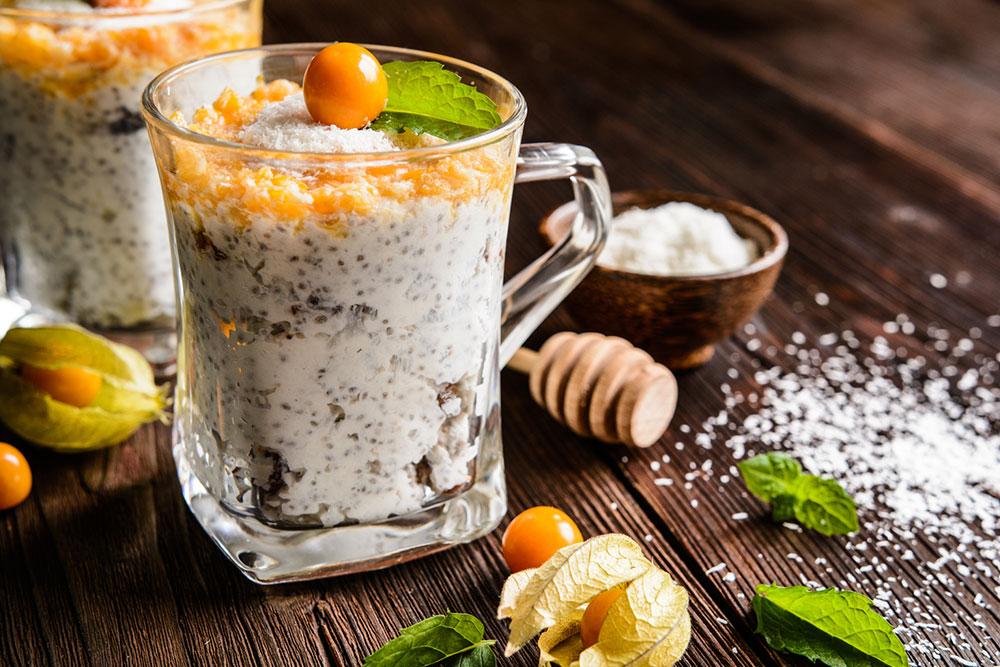
14 best foods for managing ulcerative colitis
Living with ulcerative colitis (UC) requires a mindful approach to nutrition. One’s meal plan is crucial in managing symptoms, reducing inflammation, and promoting overall gut health. While there isn’t a one-size-fits-all meal plan for everyone, several foods to eat with Colitis flare-ups have been shown to support the healing process. Below mentioned are a few of the best food options for alleviating symptoms of ulcerative colitis, along with ideas for meal plans.
Foods to eat with ulcerative colitis flare-ups
Salmon
Among the best foods for ulcerative colitis, fatty fish like salmon are in the lead, as they are rich in omega-3 fatty acids, which have anti-inflammatory properties. These healthy fats can help reduce inflammation in the digestive tract, potentially easing UC symptoms during flare-ups.
Blueberries
Packed with antioxidants and fiber, blueberries can contribute to better gut health. Their anti-inflammatory properties may help alleviate discomfort and promote regular bowel movements.
Oats
Oats are a good source of soluble fiber, which can help regulate bowel movements and promote a healthy gut, making them another favorite among ulcerative colitis foods to eat. Opt for plain oats and customize with UC-friendly toppings.
Bananas
Bananas are easily digestible and gentle on the stomach and are a prudent choice for those experiencing UC symptoms. They provide essential nutrients and can help soothe the digestive tract.
Cooked carrots
Carrots offer a blend of vitamins, minerals, and fiber that support digestive health. Cooking them makes them easier to digest, making them suitable for ulcerative colitis foods.
Lean protein
Incorporate lean protein sources like skinless poultry, tofu, and eggs into the meal plan. Protein is essential for tissue repair and can help maintain muscle mass.
Rice
Easily digestible and gentle on the stomach, rice can provide a good energy source without triggering digestive discomfort.
Mashed potatoes
Soft, plain mashed potatoes can be soothing to the digestive tract and a good source of carbohydrates.
Applesauce
Unsweetened applesauce is easy on the stomach and provides a source of fiber and vitamins.
White bread
Opt for plain white bread without seeds or nuts during a flare-up, as it’s easier to digest.
Pumpkin
Cooked pumpkin is mild on the stomach and a source of beta-carotene and fiber.
Ginger
Known for its anti-inflammatory properties, ginger can be added to teas or used as a flavor enhancer in meals.
Cottage cheese
Low-fat cottage cheese is a good source of protein and can be part of a soft and easily digestible meal.
Boiled eggs
Boiled eggs are a protein-rich option that can be included in meals or snacks.
Remember, while these foods may generally be well-tolerated during colitis flare-ups, individual responses can vary. Introducing new foods gradually and observing how the body reacts is advisable.
Meal plans for ulcerative colitis
Generally speaking, a typical 7-day meal plan for ulcerative colitis can look like this:
- Breakfast : Overnight oats with chia seeds, almond milk, and mixed berries
- Lunch: Spinach and kale salad with grilled tofu and balsamic vinaigrette
- Snacks: Rice cakes with nut butter
- Dinner: Vegetable curry with brown rice
However, it is important to seek the guidance of a registered dietician or nutritionist when looking for a 7-day meal plan for ulcerative colitis. They can offer personalized guidance, tips for balanced nutrition, symptom management, and meal timings. They can help navigate potential trigger foods and offer guidance on managing symptoms during flare-ups. A dietitian will also monitor the progress and adjust the meal plan, ensuring one’s nutritional intake supports one’s overall well-being and quality of life.
Everyone’s response to specific foods can vary, so paying attention to the body’s reactions is essential. While these best foods for ulcerative colitis can help alleviate the symptoms, consulting a healthcare professional or registered dietitian is crucial to tailor a dietary plan that suits one’s needs. A personalized nutrition approach can empower one to make choices that support well-being and effectively manage ulcerative colitis.




